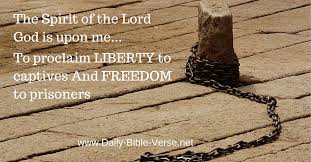Rise within us like the star
And make us restless
Till we journey on
To seek our peace in you
Song ”One more step”
Jesus says "I am the Way", and so we come to follow Christ.
Jesus says "I am the Truth", and so we come to dwell in the light of that Truth.
Jesus says "I am the Light", and so we come, leaving all else behind, to which we cling. Amen.
The Lords Prayer in our own language
Song “Meekness and Majesty”
Reflection on Luke 4:14-21
Three gospels in the New Testament offer similar portraits of the life of Jesus; Luke is the third of them. Its author, Luke the doctor who accompanied Paul on some of his missionary journeys, draws on three sources: Mark (via Matthew), a collection of sayings (known as Q for Quelle, German for source) and his own source. It is a gospel that emphasizes God's love for the poor, the disadvantaged, minorities, outcasts, sinners and lepers. Women play a more prominent part than in the other gospels. Luke never uses Semitic/Hebrew words; so he wrote primarily for non Jews/Gentiles.
In the power of the Spirit, Jesus taught in the Galilean synagogues and then came to obscure Nazareth (John 1:16) to worship as was his custom, in his hometown. There each Sabbath the community sang a psalm, recited the Shema (Deut. 6:4-5) and the 18 Benedictions, read from the Torah (Law) and then from the Prophets, they heard a sermon on the meaning of the readings and received a blessing by the president and concluded with the priestly blessing of Nb 6:24-27.
Jesus chose the reading himself, unrolling the scroll. He read Isaiah 61:1-2 replacing one phrase and leaving out much of the final verse. Maybe this was the version of the Aramaic Scriptures used in Galilee at the time; if not, then Jesus himself made the changes. Jesus omits those elements that might either spiritualize the text ("to heal the broken hearted") or threaten his audience ("to announce a day of vengeance"). He then sharpens the whole by inserting the phrase, "to let the oppressed go free." The reading therefore become clearly focused as good news for the poor and the oppressed.
The poor, the captives and the blind refer to the same oppressed group, the poorest of the poor who may be in prison due to debt. They were economically and socially oppressed. Prisoners were blinded because underground prisons were bereft of sunlight. The poor are placed at the centre of the gospel because they are the least, the lowliest, the lost.
Jesus announces a "Jubilee", a forgiveness of debt. The biblical Jubilee was held each 50 years when fields lay fallow, families returned to their ancestral homelands, debts were cancelled and slaves set free. The Jubilee restored a rough equality between families and clans. The inevitable increase in inequality and injustice over the years must be levelled down each half-century. The community could start afresh. Can you imagine if we did this today?!
Jesus slipped in the phrase "let the oppressed go free" from Isaiah 58:6. In Hebrew the oppressed are the downtrodden, those broken in pieces, the oppressed in spirit. India?
By quoting Isaiah, Jesus claims that he is both a messianic prophet of the sort that Samaria awaited, and a messianic king of the kind that Judea expected, one capable of setting in motion the wondrous events envisioned by Isaiah.
Jesus mandate encapsulates the gospel in miniature. This is what Jesus is about. This is what we should be about as Christians. Jesus’ mission is addressed to all nations. Jesus concern is a universal concern for the underprivileged and the outcast, a statement of commitment to social justice and reform, fostering mission to all in peace.
The congregation reacts in a variety of ways: with enthusiasm, admiration, doubt, small-mindedness and, finally, with anger. The gospel brings conflict.
Who are the poor, the least, the lowliest, the lost? Is it us? Do we stand at their side? Do we place the poor at the centre of the gospel, at the heart of our Christian community life and worship?
These are the values we should be living by, our manifesto, not getting rich and fat and living off others labour, not rearranging churches but getting stuck in where the poor, the oppressed and the captives are. Then we shall truly be the church on earth. And we need to do it together. Anything else is just building our own empires.
What values does our life witness to? Are we really following Jesus? Amen
Song "I bind unto myself today".
When the star in the sky has gone
And the wise men have gone back to their homes
The real work of Christmas begins
To find the lost, heal the broken, feed the hungry and release the prisoner.

